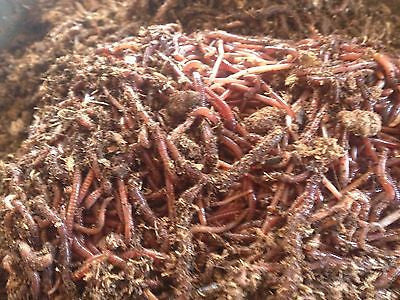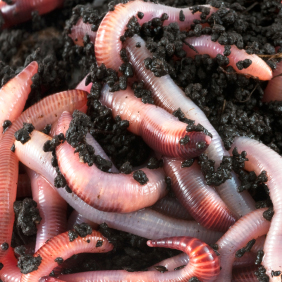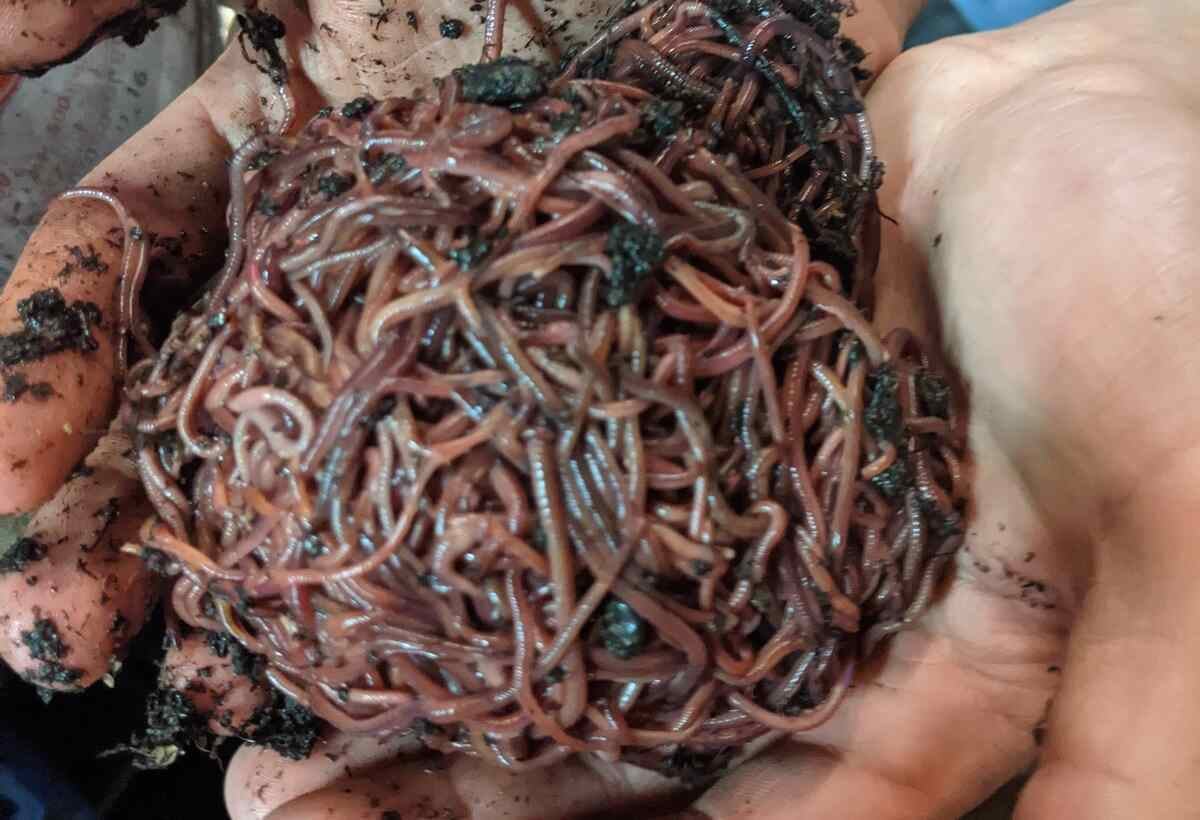Top Benefits of Using Red Wigglers for Vermiculture
The application of red wigglers, or Eisenia fetida, in vermiculture provides numerous engaging advantages that prolong beyond plain composting. As we explore these benefits better, it ends up being evident that the ramifications of incorporating red wigglers right into agricultural methods are both profound and significant.

Improved Soil Fertility
Enhanced soil fertility is a critical component of lasting farming, and red wigglers play a crucial role in this process. As a varieties of earthworm, red wigglers (Eisenia fetida) are specifically efficient in improving soil health through their all-natural habits and biological features. They take in organic waste, simplifying right into nutrient-rich castings that considerably improve dirt structure and nutrient availability.
The spreadings created by red wigglers are rich in essential nutrients, consisting of nitrogen, phosphorus, and potassium. These nutrients are conveniently available to plants, promoting durable growth and greater returns. Additionally, the presence of red wigglers in the dirt enhances microbial task, additional contributing to vitamins and mineral cycling and dirt oygenation. This biological activity fosters an extra resilient dirt ecosystem, which can better withstand ecological stresses such as dry spell or parasite invasions.
Incorporating red wigglers into farming practices not just boosts soil fertility yet likewise lowers the need for artificial fertilizers, lining up with natural farming principles. Consequently, utilizing red wigglers in vermiculture stands for a sustainable technique to soil administration, inevitably supporting the long-lasting stability of agricultural systems.
Quick Disintegration Process
The fast decay procedure facilitated by red wigglers is an amazing sensation that dramatically benefits both composting and soil health and wellness. These earthworms, understood medically as Eisenia fetida, play an important role in damaging down raw material effectively. By consuming kitchen scraps, plant debris, and other organic waste, red wigglers convert these materials right into nutrient-rich castings at a sped up price.
The procedure starts as the worms consume organic issue, where it is after that absorbed in their specialized gizzards - red wigglers. This break down not only reduces the volume of waste yet likewise improves the accessibility of essential nutrients. As red wigglers secrete spreadings, they release a byproduct that is teeming with advantageous bacteria, which even more aids in decay and enhances the compost
(buy red wiggler worms)Additionally, their burrowing tasks aerate the compost, advertising ideal microbial task. This vibrant environment speeds up disintegration, resulting in a much faster turnover of organic material right into useful compost. As a result, garden enthusiasts and farmers can appreciate quicker access to premium compost, consequently boosting their ability to support plant growth and general dirt vigor. The effectiveness of red wigglers in the disintegration procedure is hence indispensable for sustainable composting practices.
Better Dirt Framework

Moreover, the castings created by red wigglers are abundant in helpful microbes and nutrients, which promote a healthy dirt ecosystem. These spreadings enhance the dirt's dampness retention capability, lowering the need for regular watering. As the organic matter is broken down into finer bits, it enhances the dirt's aggregate security, avoiding erosion and compaction.
The existence of red wigglers additionally fosters a varied microbial area, which plays a critical role in vitamins and mineral biking. This variety additionally improves soil fertility and strength, allowing it to sustain a wide variety of plant life.

Decrease of Waste
Vermiculture utilizing red wigglers plays a vital role in the reduction of waste, specifically natural waste that would otherwise wind up in landfills. The process of vermicomposting successfully changes various sorts of natural products, such as food scraps, backyard waste, and paper products, into nutrient-rich vermicast. This not just draws away waste from land fills but likewise lessens the ecological impact connected with waste decay in these sites, which commonly produces damaging greenhouse gases like methane.
By utilizing red wigglers, people and businesses can manage their natural waste much more sustainably. These worms have an amazing capability to consume significant quantities of organic product, transforming it right into beneficial garden compost that can be made use of to enrich dirt. This process not only minimizes the quantity of waste yet additionally lengthens the life-span of land fills, inevitably adding to waste management solutions.
Furthermore, adopting vermiculture practices encourages a society of reusing and sustainability. As even more individuals acknowledge the advantages of composting with red wigglers, the collective influence on waste reduction becomes increasingly significant. In recap, making use of red wigglers for vermiculture gives a reliable method for minimizing Related Site organic waste while enhancing environmental stewardship.
Increased Microbial Task
While participating in vermicomposting, the existence of red wigglers considerably enhances microbial activity within the composting system. These earthworms develop a helpful atmosphere for useful microorganisms by freshening the garden compost and breaking down organic product. As the worms eat food scraps and other organic waste, they eliminate nutrient-rich castings, which work as an environment and food resource for diverse microbial areas.
The boosted microbial task helps with the quick decomposition of raw material, leading to much more reliable vitamins and mineral biking. This process not just speeds up compost growth but additionally improves the general top quality of the end product. Bacteria, such as bacteria and fungis, thrive in the worm-rich setting, resulting in a greater concentration of essential nutrients like nitrogen, phosphorus, and potassium in the garden compost.
Furthermore, the collaborating connection in between red wigglers and microorganisms adds to microorganism reductions and improves dirt health and wellness. By cultivating a robust microbial populace, vermicomposting with red wigglers promotes biodiversity in the garden compost, ultimately leading to richer, much healthier dirt for plant growth. Hence, the role of red wigglers in boosting microbial activity is crucial for effective and sustainable vermiculture techniques.
Conclusion
In recap, the application of red wigglers in vermiculture provides countless advantages, consisting of boosted soil fertility, effective disintegration of raw material, and boosted soil structure. Their one-of-a-kind burrowing behavior not only advertises far better water retention but likewise help in the decrease of waste, adding to lasting waste management methods. Moreover, the increased microbial activity promoted by their spreadings sustains a thriving environment, inevitably leading to healthier plants and more durable farming systems.